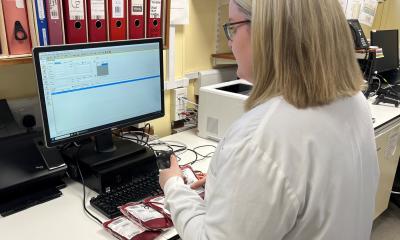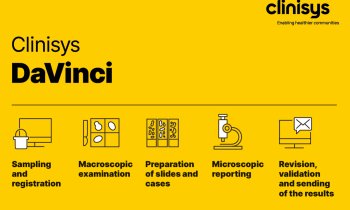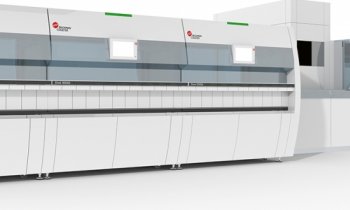Article • Between good practice and financial pitfalls
Delivering molecular pathology at lower costs
Molecular pathology should become centralised in fewer labs to improve efficiencies and affordability, according to leading European experts.
Report: Mark Nicholls
© Summit Art Creations - stock.adobe.com
Ed Schuuring, Senior Clinical Scientist in Molecular Pathology and Professor of Molecular Oncology in the Department of Pathology at the University Medical Center, Groningen, suggested this would deliver a concentration of knowledge and lead to a more cost-effective solution in the way molecular pathology labs operate. In a session at the 35th European Congress of Pathology in Dublin, which also looked at pathology in favour of developing countries, delegates also heard the experiences and challenges of molecular pathology in African countries.
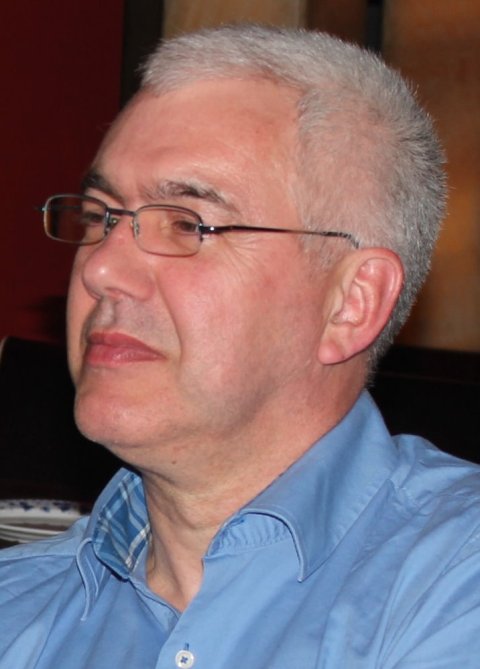
In his presentation, Schuuring outlined how molecular pathological methods are classified into five categories, based on size-tested genome and the associated costs of each. Explaining that costs are calculated on factors such as the ongoing costs of the assay, purchasing equipment, personnel, validation and lab and IT infrastructure, he noted that there are significant variations in drugs and tests across Europe.
The expert also compared the availability of biomarker test types for cancer patients in eastern and western European and Asian countries, and then globally . He further discussed the cost-effectiveness of parallel versus sequential testing of genetic aberrations for Stage IV non-small cell lung cancer (NSCLC) in the Netherlands; and cost-effectiveness analysis of cell-free DNA-based molecular tumour profiling platforms for the detection of EGFR mutations in NSCLC. In conclusion he said: ‘The availability of targeted drugs varies enormously between countries worldwide, and consequently there is a large variation in predictive testing methodologies.’
How to lower the costs of NGS testing
Observing that predictive testing is moving to next generation sequencing (NGS)-based testing as the new standard of molecular profiling testing, he made suggestions for lowering costs when using NGS assays. For those countries that require comprehensive molecular testing, his tips included:
- use one large NGS panel for all indications;
- ensure a daily large volume of cases to efficiently fill each run;
- ensure yearly large volumes of cases to efficiently use the same equipment, personnel, and infrastructure;
- ensure yearly large volumes of testing that will lower the price of equipment and assays significantly; and
- use competition among companies as hope for a future decrease in overall sequencing costs.
With the field of predictive prognostics and diagnostics rapidly growing for many indications in the coming years, his take home message was to move to centralisation of pathology. He suggested that this would lead to only very few labs which not only have efficient knowledge and concentration of knowledge, but are also able to stay cost effective.
The Tunisian perspective
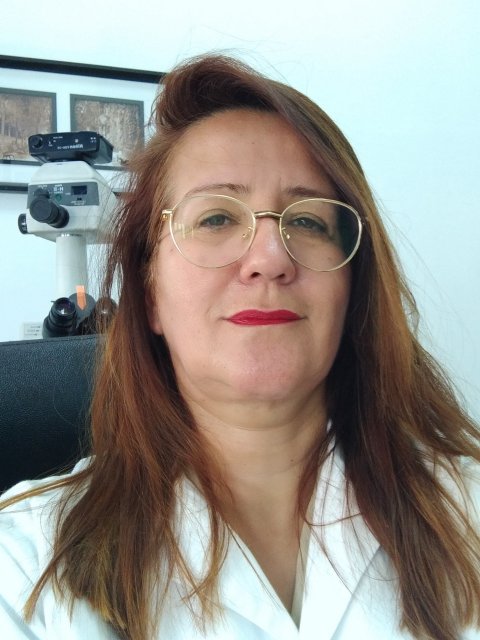
Professor Karima Mrad, Head of the pathology department at Salah Azaïz Institute in Tunis, Tunisia, outlined the position with molecular pathology in her country. In her presentation, she looked at the funding opportunities and issues for middle income countries, and shared the experiences from neighbouring African countries. She said: ‘Molecular pathology in middle income countries is a big challenge; it is a challenge to get not only the devices but also the reagents, and to get assurance quality tests.’ With limited access for new cancer therapies, she said there were issues around availability of reagents, lack of space for machines and concerns among doctors about access to molecular pathology tests. However, she said there were good quality staff, though some were taking up posts in Europe.
Mrad, who is President of the Tunisian Society of Pathology and Cytology, compared the molecular pathology service in Tunisia with neighbouring countries. While Tunisia has access to six real-time PCR units, an NGS platform coming soon, two FISH (Fluorescence in situ hybridization) stations and good quality IHC, Algeria has one NGS platform, five PCR platforms and FISH; Morocco has two NGS platforms, five PCR and three FISH stations. Furthermore, other countries in West Africa see even greater lack of availability for molecular pathology and immunohistochemistry (IHC).
She said: ‘Developments of molecular pathology programmes should take into account the local incidence and mortality of diseases. To improve molecular pathology, sustainable collaboration in activities and funding is highly needed. We hope by this we can improve molecular pathology in Tunisia so we may be part of larger international collaborations and research efforts.’
Profiles:
Ed Schuuring is senior clinical scientist in molecular pathology and Professor in Molecular Oncological Pathology at the University Medical Center Groningen, Groningen, the Netherlands. His research includes identification of prognostic/predictive epigenetic and molecular markers for clinical outcome, response to immune-chemo-radiotherapy, and gene-targeted therapy and treatment-resistance in cancers. He is a senior member of the Dutch Society of Pathology and has co-authored various international guidelines on Molecular Pathology.
Karima Mrad is Head of the pathology department at Salah Azaïz Institute in Tunis, Tunisia, and President of the Tunisian Society of Pathology and Cytology. She is associate editor on the board of French journal “Annales de pathologie”. Her research interests include gynaecopathology, particularly ovarian and uterine tumours.
12.11.2024





